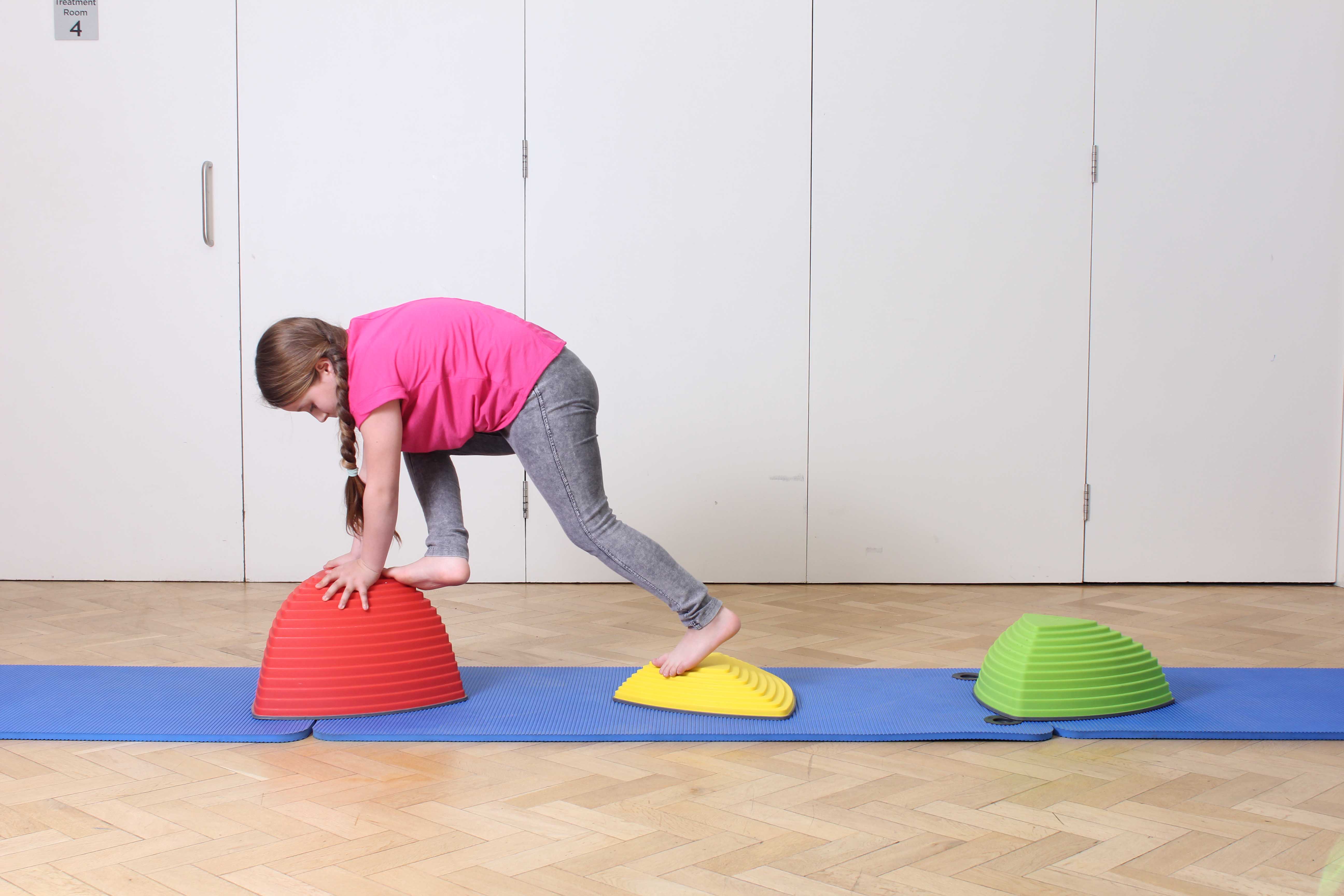What is Down’s syndrome?
Down’s syndrome is a chromosomal disorder caused by the presence of all or part of an extra 21st chromosome.
Down’s syndrome can affect a person both physically and mentally, therefore a person with Down’s syndrome is likely to a combination of physical difficulties, with associated learning difficulties. This combination means development is often delayed.
Some characteristics of Down’s syndrome have little or no effect on the everyday lives of the individuals, whereas others can significantly hinder development and the learning of motor skills.
 Above: Foot and ankle mobilisation and stretch exercises by a paediatric physiotherapist
Above: Foot and ankle mobilisation and stretch exercises by a paediatric physiotherapistWhat are the symptoms of Down’s syndrome?
Although Down’s syndrome is associated with particular characteristics leading to a recognisable appearance, it is rare two people with Down’s will face the same difficulties within everyday life.
Physical symptoms that may affect physical ability, and cause difficulty in everyday activities such as sitting, climbing and reaching include:
- shorter limbs
- poor muscle tone
- ligament laxity
- muscular weakness
- decreased head control
- poor posture in sitting and standing
- altered gait (walking technique)
- reduced co-ordination
How can physiotherapy help people with Down’s syndrome?
Physiotherapy should be started early (preferably from birth) to reduce impact of weakness and laxity on later life and help prevent some disfiguration. The main aim of a physiotherapy programme is to improve quality of life and promote normal development. This will be achieved through providing help and support throughout the life of a person with Down’s syndrome in order maintain health, and prevent deterioration.
Physiotherapy can include a number of techniques to promote full and independent living; these may include:
- practice of motor skills – both gross (large movements) and fine (small movements)
- exercises to strengthen specific muscle groups
- proprioceptive training to improve ligamentous awareness and decrease ligament laxity
- exercises to improve range of movement
- guidance and exercises to promote correct movement patterns, these may be modified to match physical capabilities
What are the benefits of physiotherapy for people with Down’s syndrome?
Physiotherapy provides help and support to optimise the chances of a full and independent life. As well as helping to achieve developmental milestones, physiotherapy is also able to provide various other benefits:
- Improved head control
- Improved strength
- Improved coordination
- Mechanisms to enable one to better cope with the functional demands of everyday life
- psychological wellbeing

 0330 088 7800
0330 088 7800


































